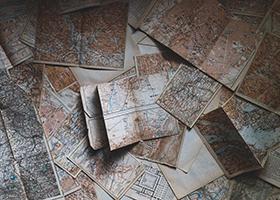 30.10.2021
30.10.2021
On October 26, RSUH hosted an international round table "The German Empire in the flow of the historical memory of Russia and Germany (1871-2021)". The event was held within the framework of the Year of Germany in Russia with the support of the Russian-German Center of RSUH, the Free University of Berlin and the Russian Society for Intellectual History.
Professor Vera Zabotkina, Acting Vice-Rector for International Cooperation, Advisor to the Rector's Office for International Affairs, made a welcoming speech to the participants of the Table. She noted that the topics were important for both Russian and German scholars because of their seminality and timeliness in the age of globalization, when science should be international, interdisciplinary and intergenerational. Vera Ivanovna also turned to the ideas of the famous Russian culturologist Mikhail Bakhtin, saying that “a dialogue is not always a consensus, it can be a clash of opinions. But only in dialogue can the truth be found".
Dr. Matthias Fischer, the representatives of the German side, Head of Economic, Financial, Scientific, Energy Department, said that
cooperation between Russia and Germany had been going on for several centuries. Thus, such famous Baltic Germans as Count Sergei Yulievich Witte and Count Alexander Khristoforovich Benkendorff pushed the Russian Empire forward. Now both states closely interact on cultural issues and academic cooperation: Russian students actively participate in scholarship programs of German universities, and the governments of the two countries both contribute to the development of cultural initiatives.
Mr. Tobias Studemann, Head of the Contact Office of the Freie Universität Berlin in Moscow, talked about the need to resume close scientific cooperation during a pandemic, which implies the need to comply with certain security measures to continue the international dialogue.
The Table was divided into two sessions and moderated by Professor Alexandra Bakhturina and Dr. Natalia Rostislavleva, Director of the Russian-German Center of RSUH, after which a final discussion took place, led by Professor Arnd Bauerkemper.
The presentations were diverse in their topics, ranging from classical political history (Dr. Boris Khavkin, "Otto Bismarck and his great-grandson Heinrich Einsiedel: Never fight with Russia ", etc.) and historical memory (Dr. Natalia Rostislavleva, "Anniversaries of the German empire in the historical memory of Russia and Germany ", etc.) to the history of concepts (Dr. Boris Antonov, "The legal system of Nazi Germany: on the relationship between the concept of "empire" and "imperial consciousness" in the Third Reich") to new political history and symbols of power (Dr. Nikolai Baranov, "Symbols of power and visualization of the ceremony of the proclamation of the Second Empire").
After the Table, the opening of the student exhibition "Johannes Gutenberg and modern typography in Germany" took place.